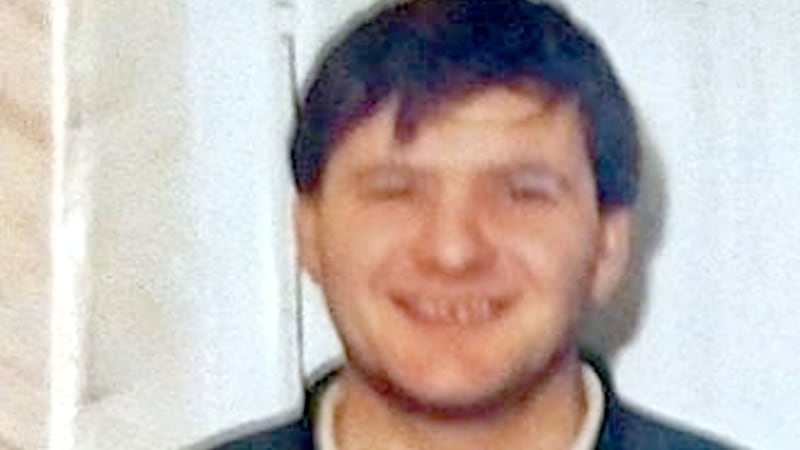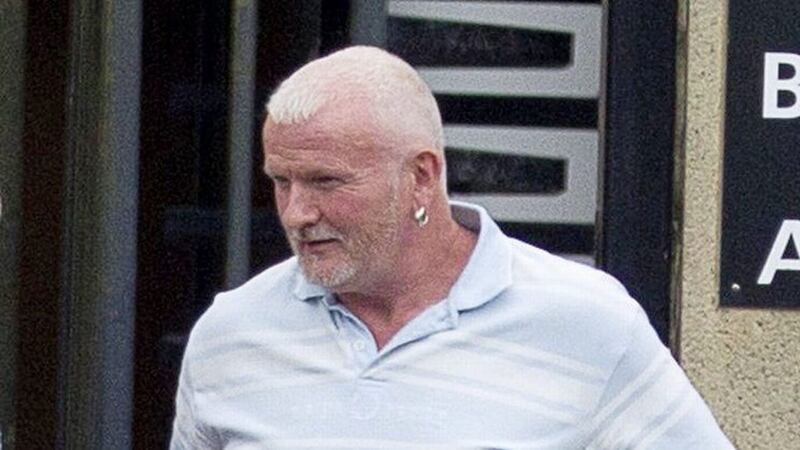The UK government must foot a legal bill for its failed challenge to the planned disclosure of sensitive information at a loyalist paramilitary murder victim’s inquest, the High Court ruled.
A judge made the order against Secretary of State Chris Heaton-Harris in the action against a coroner deciding a limited summary of some material could be provided to the family of Paul Thompson.
Mr Justice Humphreys also held that the PSNI should not be “condemned” to pay costs because Chief Constable Jon Boutcher proposed releasing an alternative version, or gist, of the same information about the killing in west Belfast 30 years ago.
“Had the Secretary of State not been involved, it seems clear the judicial review proceedings would have resolved themselves at the outset of the first hearing,” he said.
“It’s appropriate to make an order that the (coroner’s) costs be paid by the Secretary of State for Northern Ireland.”
However, the information at the centre of the legal battle remains undisclosed pending an urgent appeal set to be heard before the May 1 deadline for continuing any conflict-era inquests under the Government’s new Troubles Legacy Act.
Mr Thompson (25) was shot dead by the Ulster Freedom Fighters at Springfield Park while being given a lift in a taxi in April 1994.
Amid allegations that the RUC was aware of a credible threat against the cab firm, members of the local community suspect police were complicit in the attack by failing to provide a warning.
At the long-delayed inquest into the killing the PSNI and Ministry of Defence requested Public Interest Immunity (PII) for a number of documents which would otherwise be disclosed.
The applications were based on certificates issued by Northern Ireland Office minister Steve Baker MP, who cited the continuing threat from terrorism and asserted that any disclosure would cause a real risk of serious harm to the public interest.
Last month the coroner granted PII for nearly all of the material, but concluded that a gist of information contained in one of seven PSNI folders was highly relevant and should be provided.
She determined the risk to national security was not at the level asserted, but also ruled that names, dates and intelligence were to be redacted to mitigate against any real risk of serious harm.
During an initial legal action heard partly in private, the PSNI and Government claimed the coroner got it wrong and disputed the rationality of her reasons.
Despite that case being dismissed, the Secretary of State pursued a fresh challenge to an alternative gist proposed by the Chief Constable.
The court heard he wrote to Mr Boutcher on March 26 expressing “deep concern” at what he described as a “developing trend” towards departures from the NCND policy in legacy inquests.
A request was made for Mr Boutcher not to propose or consent to any disclosure of information subject to claim for PII without giving an opportunity to make representations.
In his reply to Mr Heaton-Harris, the Chief Constable denied taking any action to depart from the NCND policy and confirmed he had no intention of allowing the disclosure of information which would cause serious harm or real damage to national security or the public interest.
He also stated: “I am independent of the executive and not subject to the direction or control of government ministers, departments or agencies.”
Counsel for the Secretary of State confirmed today that he is to appeal the dismissal of his legal challenges.
Tony McGleenan KC acknowledged the Chief Constable has now taken a different view.
But he told senior judges: “The underlying important issue is the approach adopted by the coroner where there is an assertion of damage to national security.”
Lady Chief Justice Dame Siobhan Keegan agreed to list a fresh hearing at the Court of Appeal on Monday.
Assurances were given that the coroner will not disclose the information pending a final determination.

